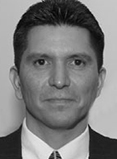Background:
Disparities in clinical care and health outcomes for Latinos/Latinas are a significant public health problem in the United States. As a result of the difficulties many Latinos/Latinas face in accessing health services, Latinos/Latinas are more vulnerable to preventable diseases, resulting in population-wide health disparities. The health of Latinos/Latinas is directly related to access to health care providers and services for a number of reasons. First, according to recent studies, Latino/Latina physicians tend to locate their practices in areas with higher proportions of residents from Latino/Latina backgrounds. Second, there is evidence that a language barrier impacts the disparities in Latino/Latina access to health care. Third, there is evidence that culture, including racial and ethnic concordance, is a factor that exacerbates the disparities in Latinos/Latinas access to health care.
It is likely that Latino/Latina patients will be more comfortable seeing a physician with a similar cultural and social background. For these reasons, Latino/Latina physicians who speak the language and share the culture of marginalized Latinos/Latinas can help to bring such patients into the health care system. It is therefore a worthy goal to increase the number of linguistically and culturally congruent Latino/Latina physicians.
The American Medical Association projected that, although the ratio of all physicians to the general population would narrow by the year 2000, the number of Latinos/Latinas in the medical profession would not keep pace with the rate of growth of the Latino/Latina population. Having Latinos/Latinas significantly underrepresented in the nation’s physician workforce will contribute to unequal access to health care for the Latino/Latinas population, therefore, increasing disparities.
As shown, Latino/Latinas physicians are a possible remedy for the disparity of access to care with regard to Latino/Latinas patients when language and culture are considered. Residency is an excellent short-term predictor of the emerging physician workforce. In order to assess the current workforce status, it is imperative that programs that receive public funding report to the public the racial and ethnic backgrounds of the residents in their program.
Methods:
A secondary analysis was conducted on the data that was collected together with the Department
of Data Collection at the American Medical Association (AMA) and the Association of American Medical Colleges (AAMC) of primary care residencies. Together they jointly conducted the National GME Census through the GME track, an internet based AAMC product. The active programs that were surveyed were accredited by the Accreditation Council for Graduate Medical Education (ACGME) in academic year 2000-2003. Program directors were asked to reconfirm the training status of residents who were in their programs the previous year. The data was analyzed using SPSS for Windows.
Results:
There is evidence that the future Latino/Latina Physician workforce is grossly underrepresented.
U.S. born Latinos/Latinas are disproportionately seeking their primary medical education outside of the United States. When seeking education within the United States there is evidence that they are seeking refuge in a cluster “Latino/Latina friendly” schools. The ratio of U.S. Latinos/Latinas in primary care is disproportionate to the overall U.S. Resident workforce providing evidence that Latinos/Latinas return to their respective populations after completing their training.
Conclusion:
It is apparent that the Latino/Latina physician, through the evidence provided, is a remedy to the disparities in access to care for Latinos/Latinas. Insurance is a common problem shared across racial/ethnic lines. Culture is a problem shared between African Americans and Latinos/Latinas when focusing on disparities with regards to access to care and is well described in the literature. Language is the factor that separates the two populations. When trying to narrow the gap in disparities when focusing on Latinos/Latinas, one must remember insurance, culture, and language. Evidence suggests that all three must be addressed or the gap will remain. The Latino/Latina physician, therefore is a logical remedy for this disparity. As researchers, we must discover methods to construct this solution to a problem which burdens our delivery of modern medicine to our population.
Faculty Preceptors:
Sarah E. Brotherton, PhD, Department of Data Collection, American Medical Association.


